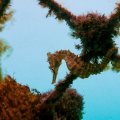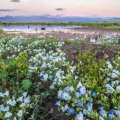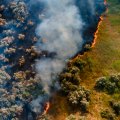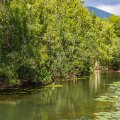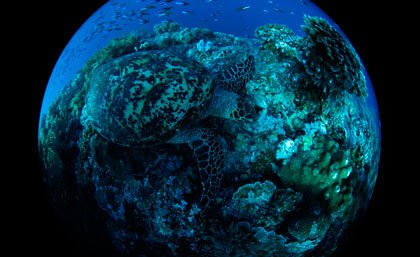
Queensland marine biologists have found that the damage sustained to a Filipino coral reef from an American warship is more extensive than first thought.
Dr Benjamin P Neal, from The University of Queensland’s Global Change Institute, is part of team of researchers with the Catlin Seaview Survey that has been investigating coral reef recovery.
Dr Neal said a comparison of images and data captured across the area where the USS Guardian ran aground in the Tubbataha Reefs Natural Park in January 2013 indicated the reefs had been very slow to regenerate.
“The ship ran aground in a marine protected area, which is one of the most pristine reefs in the Filipino region,” Dr Neal said.
“An initial survey of the reef area estimated the damage to cover more than 2345 square metres of reef, an area the size of half a football field.
“It appears the reef outside the direct impact zone was also damaged, probably by strong wave and current action that was altered by the presence of the ship.”
Demolition crews took two months to dismantle the wooden Avenger-class minesweeper ship, using a giant, floating crane.
Working with Tubbataha Management Officers, researchers with the Catlin Seaview Survey used a customised, high-resolution panoramic camera system mounted on an underwater scooter to record a visual baseline of reef health.
“This equipment has allowed us to gain a greater insight into the recovery of the damaged Tubbataha Reef, as we can survey a larger area in more precise detail than ever before,” Dr Neal said.
“Reefs around the world are currently in a state of decline from warming oceans and pressure from human activities, and one of the key aspects to having any corals in the future will be understanding the conditions that assist reef recovery.”
The Catlin Seaview Survey, funded by international insurer Catlin Group Limited, will this year take its innovative underwater camera system to other key reef sites in South East Asia to create a visual baseline of information, allowing scientists to monitor future reef change.
Media: Catlin Seaview Survey Shallow Reef Scientist Dr Benjamin P Neal: 3365 6009, 0421 727 846; Catlin Seaview Survey Online Communication Strategist Pahia Cooper: 3443 3153, p.cooper2@uq.edu.au
.jpg)
